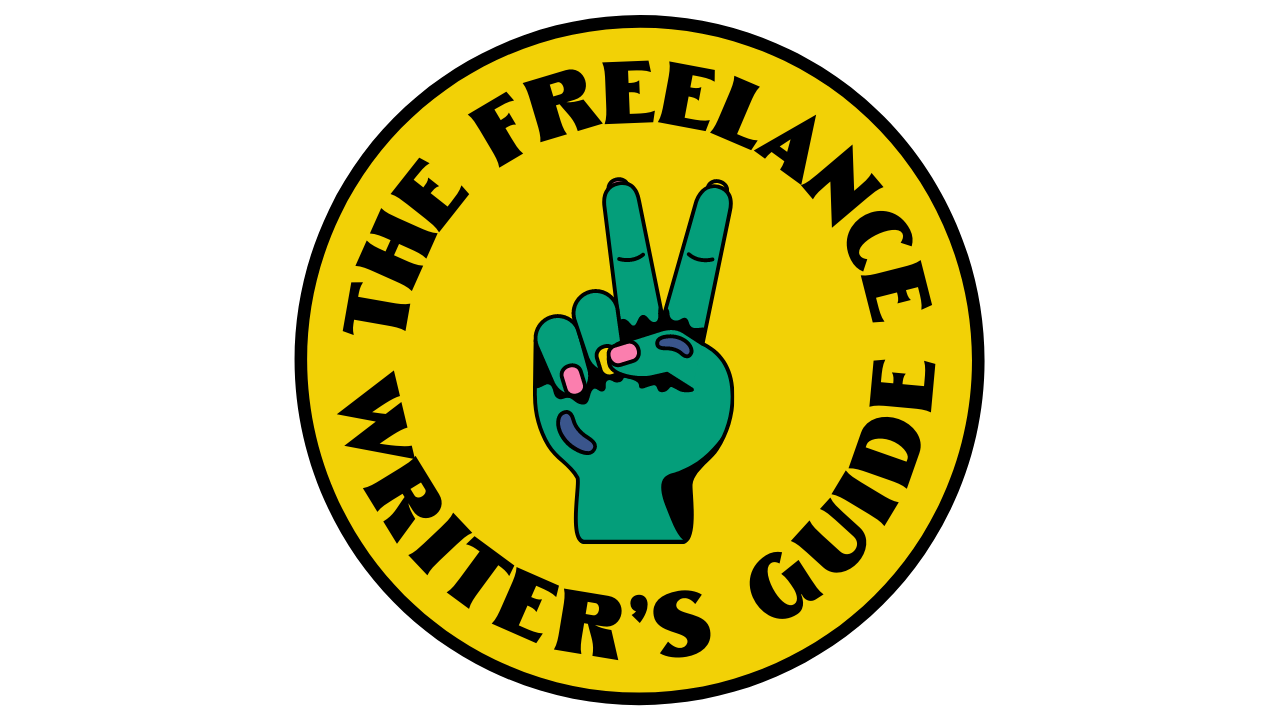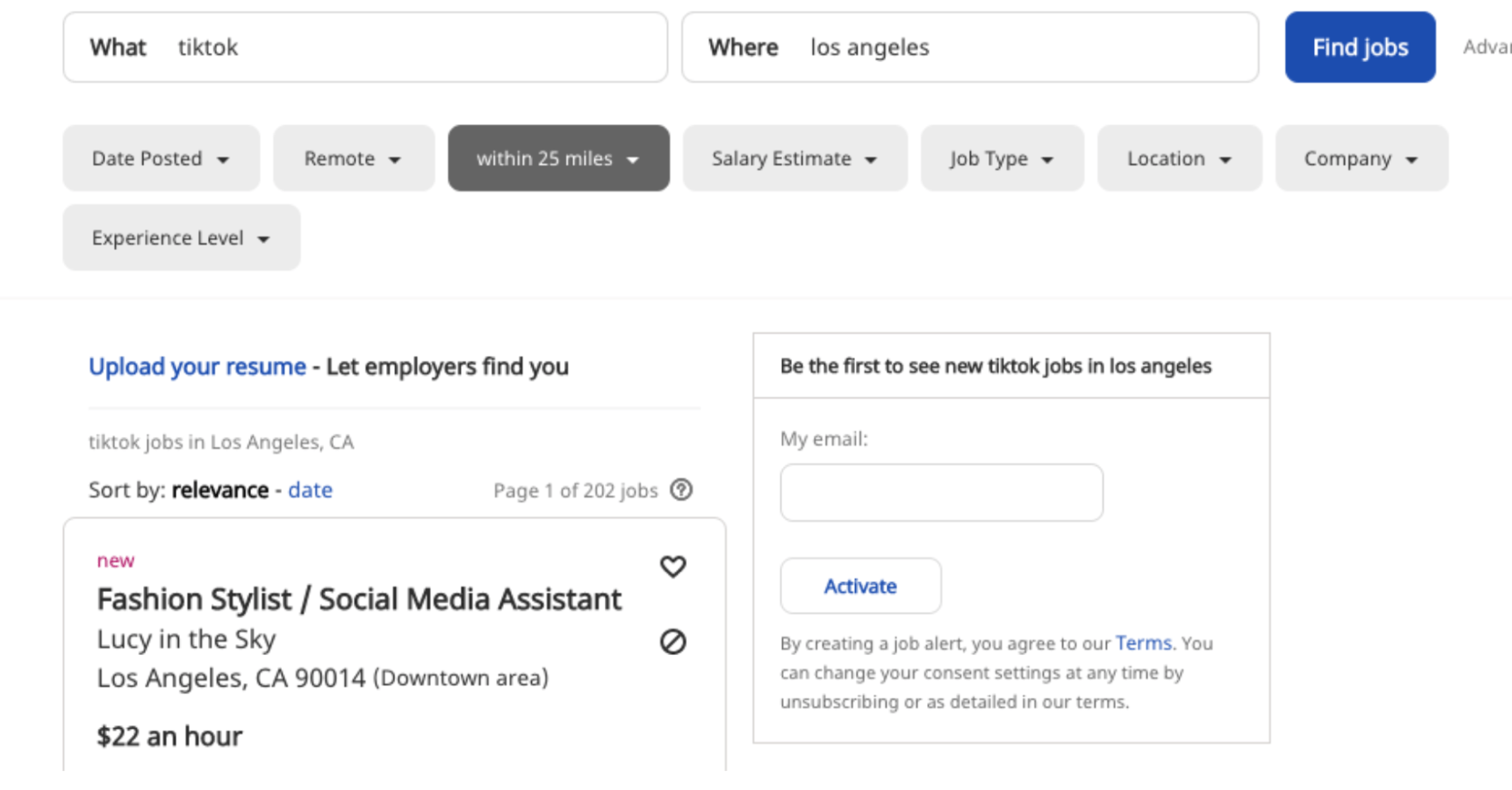Applying for Writing Jobs? Read This First!
If you’re reading this blog post, chances are you’re wondering how to get a writing job. You’re in luck, because I now know all the secrets!
You see, in my time on Earth, I have had the interesting experience of both applying for writing jobs and hiring for writing jobs. When I first began my freelance writing career, I slogged through job application after job application, and I never got any results. If only I knew then what I know now!
This May, I hired my first employee, and boy did that blow my mind. Suddenly, I was the recruiter. I was the woman that the job applicants were trying to impress! It was a surreal experience, but it really taught me a lot about how to get a writing job.
So, I’m sharing everything I learned from that experience with you today. If you want to learn how to get a writing job, keep reading!
HOW TO GET A WRITING JOB IN 8 SIMPLE STEPS
1. Figure Out What YOU Want
When you’re looking for a job, you need to look for a job that is going to work for you. Otherwise, you’ll be miserable and do terrible work, and no one will benefit.
So before you begin your writing job search, write down what kind of position you’re looking for. Do you want to work for a large company, a startup, or something in-between? Do you want to work freelance, part-time, or full-time? What do you see yourself doing each day and what kinds of things will you write about? How much will you be paid for your work?
You might not know what writing jobs are available, and that’s okay! Just write down your ideal scenario.
Not only will this help with the next step, but it will also help to manifest your perfect writing job (if you believe in that sort of thing, like me!).
Where do you want to be? Grab a pen and paper and start visualizing your dream job/life.
2. Create a Resumé & Portfolio
Now create your resumé and freelance writer portfolio, highlighting why you’re good at all those activities you said you wanted to do before. (If you don’t have experience, we’ll talk about that later.)
I recommend creating your resumé on Canva using a beautiful design. This will help to express your personality and set you apart from the pack. Also, if you have a nice-looking resumé, it shows that you give a shit, and employers want employees who give a shit.
If you have terrible graphic design skills (and the self-awareness to know that they’re bad), hire someone on Fiverr or Upwork to create your resumé for you.
Also, proofread your resumé! I will toss out a candidate as soon as I notice a typo on their application materials. If they aren’t detail-oriented enough to fix their resumés, I expect their work to be sloppy, too.
Then save your resumé as a PDF. Why? Because PDFs are universal, which means that your resumé will look exactly the same no matter what type of operating system your prospective employer uses. And FYI: Microsoft Word docs are not universal.
If you want to stand out, start with a beautiful resume and portfolio.
3. Create Job Alerts
Remember in the last step where we defined our ideal job function? Now it’s time to search for those activities on your favorite job search engine (I prefer Indeed).
But, instead of searching through the job listings, you’re only going to create alerts. For example, if you want a job making TikTok videos in Los Angeles, you’ll enter that search criteria on Indeed.com. When you get your search results, you’ll also see this:
Enter your email and activate that search! Then repeat for all of the activities you’d like to do at your new writing job, along with any locations you’re comfortable working in.
So, why are we doing this instead of just applying to writing jobs from the search page? In my experience, a lot of people are looking for writing jobs right now. The last time I posted a writing job on Indeed in May, I received over 300 applicants in just THREE DAYS. Unless you see a writing job post that has been posted within the last 24 hours, you’re already too late.
4. Wait to Receive
Now here is the hard part: Waiting to receive an email alert about your perfect writing job.
You’re probably thinking, shouldn’t I be applying to writing jobs for 8 hours a day? NOPE. If you do that, you’ll end up applying for writing jobs you don’t really want anyways. An employer can sense from your application that you’re not interested. You’re wasting their time, and you’re also wasting your own time.
That isn’t to say that you need to wait for a writing job that is 100% perfect for you. A job doesn’t need to match all of your criteria, but please, for the love of God, wait until you find something that excites you! You wouldn’t get married to the first random Joe Schmo who showed up on your Hinge feed, right? The same goes for writing jobs.
So, what should you do in the meantime? WORK. ON. YOUR. SKILLS. Refer back to your list of ideal job activities. Are you actually good at those things? Nah? Well, it’s time to get good at them.
I know there’s always this idea that you need experience to get a writing job, but you can’t get experience without a job.
You want to write articles for a fashion magazine? Start a fashion blog. Want to do content marketing? Volunteer to help a local non-profit with their content. Want to write social media posts? Take over your uncle’s landscaping company’s Facebook page.
Go out and start making stuff, and the right opportunities will come to you!
Anything you achieve should then be documented in a project format. If you helped a local non-profit with their marketing, create a case study about it! Put together a fact sheet about your blog’s popularity, or how you increased your uncle’s company’s follower count. Then add all of it to your freelance writer portfolio. This will be helpful later on in the application process.
Sharpen your skills and set yourself up for success.
5. Apply Right Away
Once you receive a job alert for a writing job that looks interesting, don’t wait to apply! As I said, a lot of people are looking for jobs right now. Employers are likely to be overwhelmed with applicants within days – if not hours – of creating their job posting.
Don’t even wait to finish your sandwich. Do it NOW!
6. Put in Some Effort!
So, now you’re applying to your dream job. What do you do? Send them your resumé and copy and paste your generic cover letter, right? WRONG!
First, review your resumé and make any edits that will highlight why you’re exactly the right person for this particular writing job. Next, write an original cover letter about what you can do to help the company. Do NOT write a letter about why this would be a great opportunity for you. Prospective employers don’t know you, and they don’t care about your career. They want to know what you’re going to do to help them, period.
Also, keep your cover letter short. Like I said, employers are getting hundreds of these babies and they don’t have time to read a Dickensian novel. And since you’re a writer, this is an excellent time to show off your writing skills. Make it interesting, and don’t forget to proofread!
Finally, attach relevant examples from your portfolio to your application. Trust me, nothing impresses employers like taking initiative and showing how much effort you’re willing to put into a project you’re passionate about.
Putting in effort shows you’re reliable and detail-oriented.
7. Nail the Interview
Now it’s time for the interview! Your mission here is to come across as capable and friendly. That’s about it. Studies have shown that interviews aren’t actually an effective tool for employers to choose the right employee, but we do them anyways.
Here are a few tips to make sure your interviews go well:
Familiarize yourself with the platform it will take place on. If you’ve never done a Zoom call before, do a practice one beforehand so you know what to expect.
Arrive early. Punctuality is key, even in the remote workplace.
Keep your resumé, portfolio, and the job posting in front of you to refer back to in case you forget what you’re talking about.
Relax and just try to connect with the interviewer as a person. You don’t need to be so serious!
Send a thank you email afterwards.
8. Nail the Interview Assignment
If your interview went well, your prospective employer will probably ask you to complete a short test assignment. Now is your time to shine, particularly if you don’t have a lot of experience!
Do not procrastinate on this. Start early, work hard, and ask for feedback from people you trust. Do your absolute best, and hopefully you’ll wow the prospective employer and get hired!
If not, don’t despair! The opportunity was not meant for you, but the right one is on its way.
Nail your writing job interview with preparedness and proper etiquette.
UM…BUT WHAT ABOUT MONEY?
Oh, right, money. Okay, so here’s the thing: It may take time for an exciting opportunity to walk into your life. So what should you do in the meantime to make ends meet?
If you already have a job, good on you! Don’t leave until you either have a decent “FU fund”, or you have a new writing job lined up. Don’t put yourself in a precarious position.
If you were laid off from your previous role, definitely use all the government assistance you can. Get that unemployment, and don’t feel bad about it! That’s what it’s there for. With luck, you also have some money saved up, and by cutting back on expenses you’ll be able to make it work until you get your dream job.
Otherwise, you might need to hustle a bit. I am usually against hustle culture, but this might be the one time when it’s a good thing.
In addition to working on your portfolio projects that are going to set you apart from other candidates, you’ll also need to work at least part-time to make ends meet. Trust me, I’ve been there. I drove for Uber for 6 months on top of working full-time in order to follow my dream of moving to California. I considered getting a sugar daddy so I could quit my job and write. Eventually, I moved in with my parents so I could pursue freelance writing full-time. Sometimes you just gotta do what you gotta do to make shit happen.
That being said, I don’t think that you should take a job as a stepping stone at a company who is really going to count on you. Like, don’t sign on as a marketing manager at a mom & pop business if you don’t really want to work there. You’ll be miserable, you’ll do poor work, and you’ll really let down the people who hired you. In a small organization, every team member really needs to pull their weight. It’s selfish to collect a paycheck from people who are counting on you when you don’t want to be there.
There are plenty of jobs out there where you can collect a paycheck and it won’t matter one bit whether you want to be there or not. For example, if you get a job at an Amazon warehouse, it’s not going to hurt anyone if you up and leave for your dream job in 6 weeks.
My point is, if you really need a job in the meantime, look for a job at a big company that doesn’t require a lot of skills or training. That way, you can focus your attention on your passions and you won’t need to worry about money as much.
And that’s how to get a writing job! Whether you’re looking for a freelance or full-time position, let this guide help you when applying. Good luck out there.
If you have any questions or tips of your own, let me know in the comment section below!
Like this post? Subscribe to my YouTube channel here!






